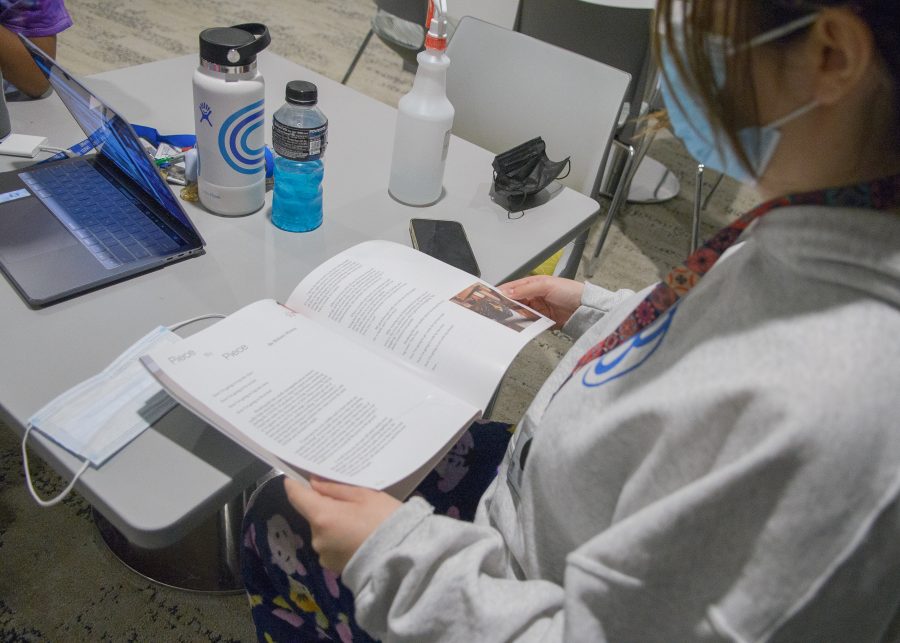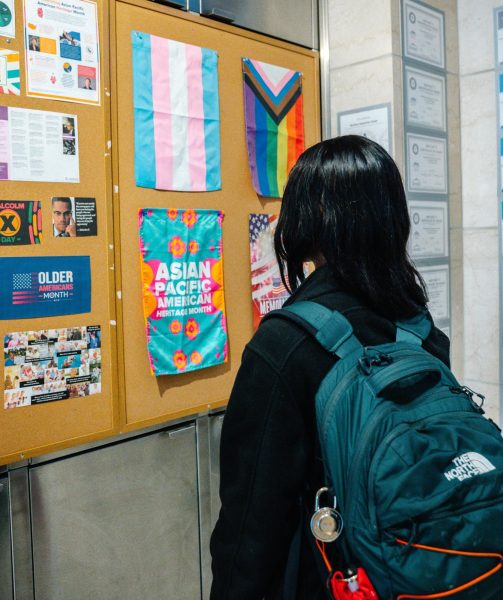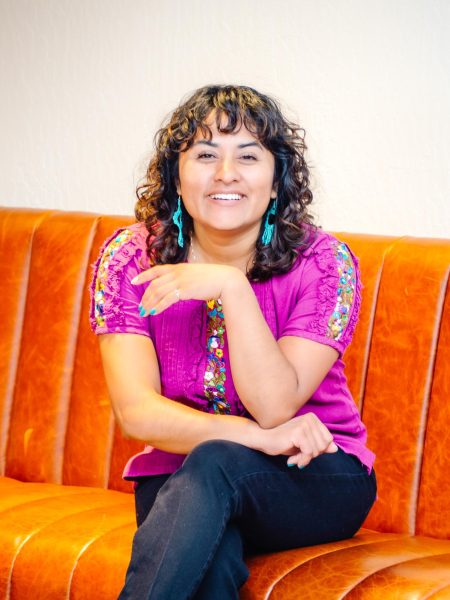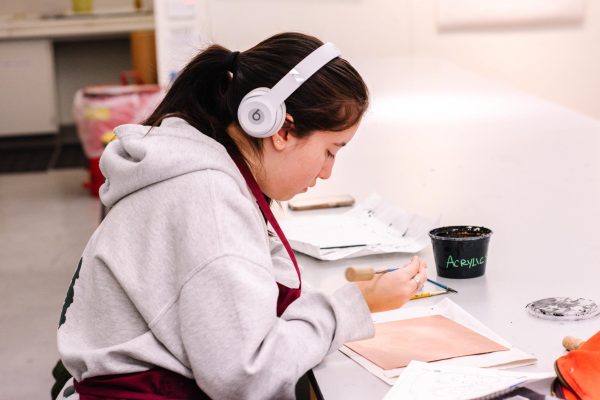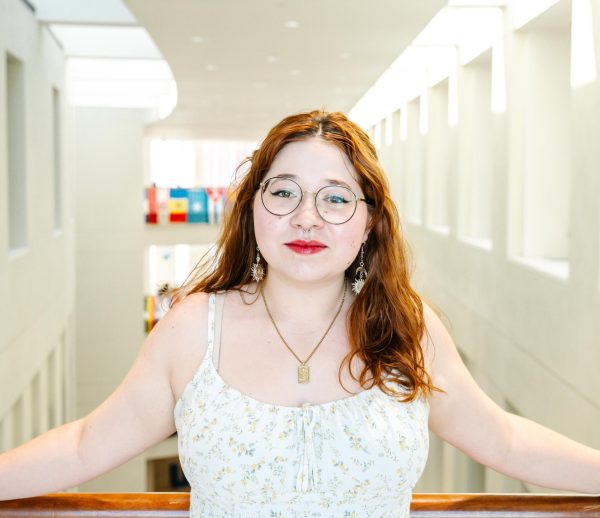Writ Large’s ‘10,000 Hours’ answers a timeless question
A UMass Boston student relaxes in the lounge reading the newest “10,000 Hours” by Writ Large. Photo by Olivia Reid / Mass Media Staff
May 5, 2022
If someone were to be asked what they would do with an extra 10,000 hours in a day, most people’s answers would be the same: sleep, spend time with loved ones, get homework done or finally work on that project they had been putting off for a better time. UMass Boston’s literary magazine, Writ Large, answers this question in their latest edition “10,000 Hours,” which is paired with incredible art and photography.
Writ Large is UMass Boston’s nonfiction literary magazine that features op-eds—short for “opposite the editorials page” or “opinions and editorials page”—and poetry from UMass Boston students biannually. Each edition has a core theme, such as “The Year 2020,” “Global Connectivity” or “We the People,” and writers can write whatever they see fit based on that theme, so long as it is approved by the editing staff.
The magazine’s first article, after a brief letter from the editor, sums the entire theme up perfectly. In his piece, Robert Lovett breaks down exactly what having an extra 10,000 hours would mean from a time standpoint. From his calculations, Lovett calculated that 10,000 hours is just over an extra year when broken down, which means if he were to have an extra 10,000 hours, he’d have an extra year to achieve things. However, Lovett expresses his desire to slow down and live life without stress, suggesting ideas like eating more candy, sleeping a bit more, spending time with loved ones and worrying about money a bit less. Lovett’s article beautifully sets the tone for the rest of the edition, no matter how the contributors convey it.
On the other end of the spectrum was Aimee Trafford’s “The Insignia of a Generation.” Where Lovett’s piece discussed the desire to use the extra 10,000 hours to stop and slow down, Trafford’s focused on how the extra hours would be spent the exact way they are currently—trapped into a chaotic, fast-paced capitalistic society. Trafford reflects on the pleasant ideas of what to do with the extra time, but the reality is that most things will stay the same. Trafford’s piece serves as a slightly cynical reminder of what 10,000 hours would mean, rather than be gathered up in peace and quiet.
While every piece was incredibly thought out and beautifully put together, stand out ones were “Piece by Piece,” “The Reality of 10,000 Hours” and “Baking is Easy.” These three pieces, while not explicitly stating the theme, artfully work the theme into hobbies or analysis.
“Piece by Piece” by Britney Rivera describes Rivera’s decision to apply, and later attend, a work study program at a farm in Pennsylvania in the midst of the pandemic. While she had excellent experiences and made friends, she missed out on moments with her family—the good and the bad. Life had to be broken into smaller pieces to become bearable, and at some point Rivera began to have fun. Like Rivera on the farm, one can only assume that with an extra 10,000 hours, some people may take the chance to get away, but miss crucial moments in their lives. However, just as Rivera states, it’s all about taking things one step at a time.
Hannah Ortiz’s “The Reality of 10,000 Hours” is playful and witty, all the while discussing the larger topic of queer characters in media. Ortiz begins the piece by saying how if she had an extra 10,000 hours, she would turn off her brain and watch reality television, something that many people can relate to in some form. However, Ortiz then discusses the representation of queer people in media through the lens of Zach Rance from “Big Brother,” and how Zach served as a positive light for queer representation. Comparing the two, especially with the contrast of shows like “The Circle,” had been incredibly interesting and insightful.
“Baking is Easy” by Riley Hammond is a perfect poem to capture the feelings of stress-bakers. Hammond discusses how baking can be a chance to rest and be alone, and how baked goods don’t ask questions about school or love lives like people would. For many bakers, 10,000 extra hours would mean the ideal chance to dedicate time to the recipe that they hadn’t perfected yet, or shower their loved ones in baked goods. The poem is the second to last piece in the magazine, and feels like an absolutely sweet wrap-up to this collection.
Writ Large’s “10,000 Hours” artfully answers the question of what college students would do if they had more time in the fast-paced environment, with each piece being more entertaining to read than the next. The magazine’s Fall 2022 edition, “Mind Over Matter,” is currently collecting submissions, and focuses on how the writers put their own self and mental health over any other distractions, no matter how difficult it can be. For more information, or to submit, email [email protected].





















































